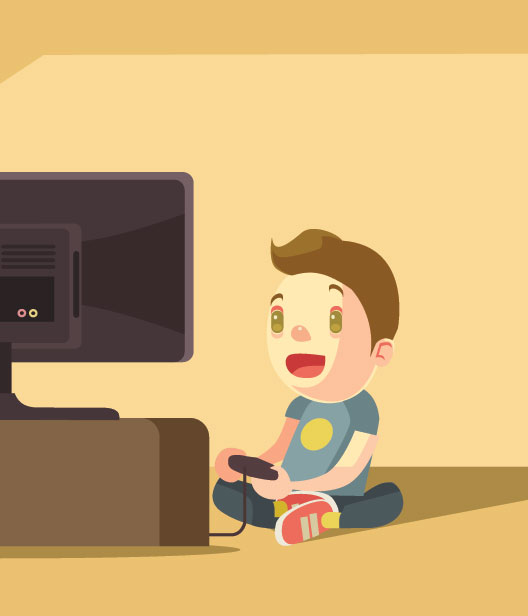
In a world as digitally empowered as ours, media can be both a positive as well as negative force to reckon with. What really contributes to making media use disturbing is the fact that kids are spending a lot more time in front of media screens, a lot earlier in life than ever before. This is alarming considering that research points out that children before the age of 2 should not be exposed to screens as it can impair cognitive functions. In later years, of course, some amount of screen time can be beneficial too. The trick therefore is in finding the right amount of time spent, watching the right kind of content. And that is a tight ropewalk for most parents.

Here are a few tips to help you navigate the delicate world of balancing screen time with other activities:
- Lead by Example: Parents are the first role models for children and much of their early behavior is modeled on how they see you using media. Limiting your own screen time including TV viewing and using media for more productive purposes will help children understand and appreciate boundaries and different uses of media better. If that smart phone has become almost an appendage for you, it is time to re orient.
- Apply the same parenting guidelines for media as you would any other aspect in your child’s life: Lay down the ground rules for media just as would for any other activity. Be mindful in setting up the basic do’s and don’ts as well as the limits within which they are expected to operate the device. Apply parental controls so that you know what apps, software and sites your child is frequently visiting.
- Encourage Offline Play: Parenting involves not just telling your child what he or she shouldn’t do, but also offering viable alternative of what they could. No discussion of limiting screen time is therefore complete without discussing the alternatives by way of outdoor activities that they can indulge in instead. Encourage them to undertake active, unstructured play that makes for both a healthy body and a healthy mind.
- Keep some parts of the home tech free: Create areas of no technology especially in family areas to promote greater conversations. Family times like meal times and social gatherings should be off limits for any kind of technology to enable children to facilitate social skills. Share your day with them and likewise encourage your child to share the day’s events with you including their thoughts and activities. Once again this is also a shout out to you to inhibit your own media consumption habits. Hours of idling through facebook at bed time, may not make for a great example.
- Be careful about what apps you download for your child to play with: Clearly it is not enough only to restrict screen time without paying attention to what they are watching during the time allowed to them. Many apps label themselves as educational and interactive but can contain content that is not suited to young minds. Many apps do not encourage the child to do anything more than swipe and occasionally click. Look for quality apps recommended by trusted sites that are interactive and promote early stage cognitive learning. Above anything ensure that the content they are engaging with, is age appropriate.
Above everything else, in the rat race that is modern life, steer clear of the temptation of replacing your presence with a screen just because it makes for an easier alternative. Being involved in your child’s life will make the job of parenting that much easier and infinitely more rewarding as they grow up.

Amita is an experienced educator with over 30 years of experience. She has an outstanding understanding of child development, having worked with various age groups for prestigious businesses. She has been dedicated to handling Footprints’s Curriculum and Delivery department for the past decade. Amita’s credentials include being one of India’s few HighScope Curriculum certified trainers and volunteering as a course leader for Landmark Education, the world’s largest training firm.

